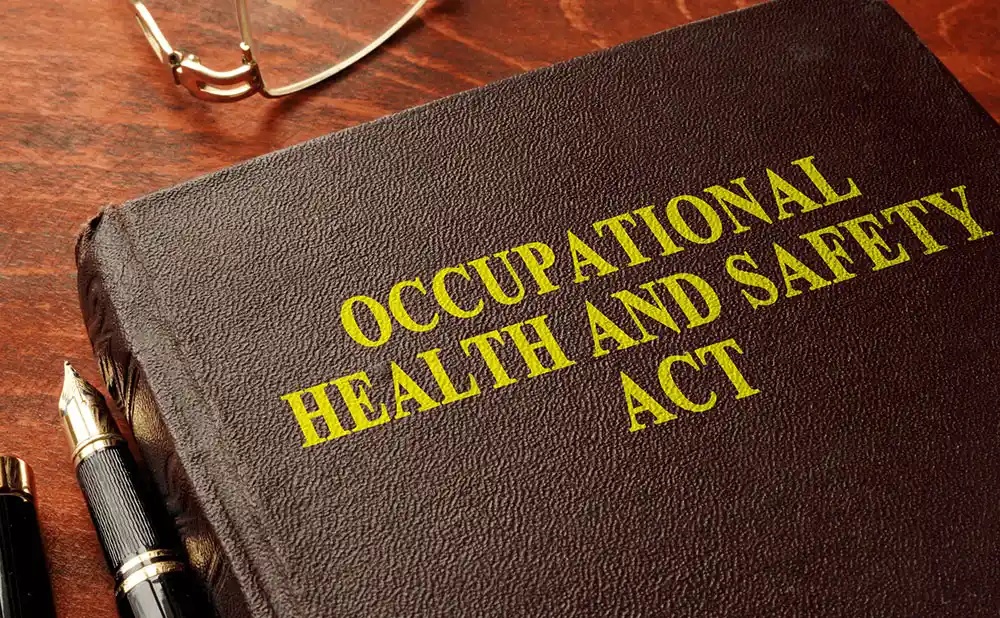
⚖️ The Occupational Health and Safety Act in South Africa
The Occupational Health and Safety Act (OHS Act) of 1993 is one of South Africa’s most important pieces of legislation, designed to safeguard the health and well-being of employees in the workplace. For businesses, compliance with the OHS Act is not optional — it’s a legal requirement that protects both employers and workers.
At Royalty Occupational Health Services, we help businesses navigate compliance by offering medical surveillance, workplace medicals, risk-based assessments, and health & safety training tailored to South African industries.
🔎 What is the OHS Act?
The Occupational Health and Safety Act (Act 85 of 1993) places responsibility on employers to ensure a safe and healthy working environment. It also requires employees to take reasonable care for their own safety and that of their colleagues.
Key objectives of the OHS Act include:
-
Preventing workplace injuries and diseases.
-
Promoting safe working conditions across all industries.
-
Reducing health risks linked to occupational exposure.
-
Holding employers accountable for employee safety.
-
Empowering employees to participate in safety initiatives.
🏢 Employer Responsibilities Under the OHS Act
Employers are required to:
-
Provide a safe workplace free from hazards.
-
Conduct risk assessments to identify potential dangers.
-
Provide medical surveillance and workplace medicals where necessary.
-
Train employees on occupational health and safety practices.
-
Maintain proper safety equipment and personal protective equipment (PPE).
-
Report workplace accidents, diseases, and fatalities to the Department of Labour.
Failure to comply with the OHS Act may result in legal action, penalties, and reputational damage.
👷 Employee Responsibilities
Employees also play a role in workplace safety under the OHS Act. They must:
-
Follow safety rules and procedures.
-
Use protective equipment provided by the employer.
-
Report unsafe conditions to supervisors.
-
Avoid actions that may endanger themselves or others.
This shared responsibility ensures safer, healthier workplaces.
📊 How Royalty OHS Helps Businesses Stay Compliant
Navigating the OHS Act can be complex, but Royalty Occupational Health Services makes compliance simple by offering:
-
Workplace Medicals – pre-placement, periodic, transfer, and exit medicals.
-
Medical Surveillance Programmes – detecting early signs of occupational diseases.
-
Risk-Based Medicals – tailored to specific workplace hazards.
-
Wellness Health Programmes – improving productivity and reducing absenteeism.
-
PPE Supply – providing high-quality protective gear.
-
Training & Awareness – health and safety training sessions for staff.
We work with companies across industries — construction, mining, manufacturing, logistics, and more — to align with OHS Act standards.
🏭 Why Compliance Matters
Complying with the Occupational Health and Safety Act is not just about avoiding penalties — it creates a healthier, more productive workplace. Benefits include:
-
Reduced accidents and illnesses.
-
Improved employee morale.
-
Lower healthcare and compensation costs.
-
Better productivity and efficiency.
-
Enhanced corporate reputation.
When businesses put compliance first, everyone wins.
✅ Conclusion
The Occupational Health and Safety Act in South Africa is the foundation of workplace health and safety regulations. By following its requirements, employers protect their workers, avoid legal risks, and build stronger organizations.
At Royalty Occupational Health Services, we specialize in helping businesses achieve compliance through tailored medicals, surveillance, PPE, and health training.
Frequently Asked Questions
The OHS Act is designed to protect employees from workplace hazards, reduce occupational diseases, and ensure safe working conditions.
The Department of Employment and Labour is responsible for enforcing the OHS Act through inspections and compliance checks.
Companies must conduct risk assessments, provide workplace medicals and medical surveillance, train employees, supply PPE, and report incidents to remain compliant.
